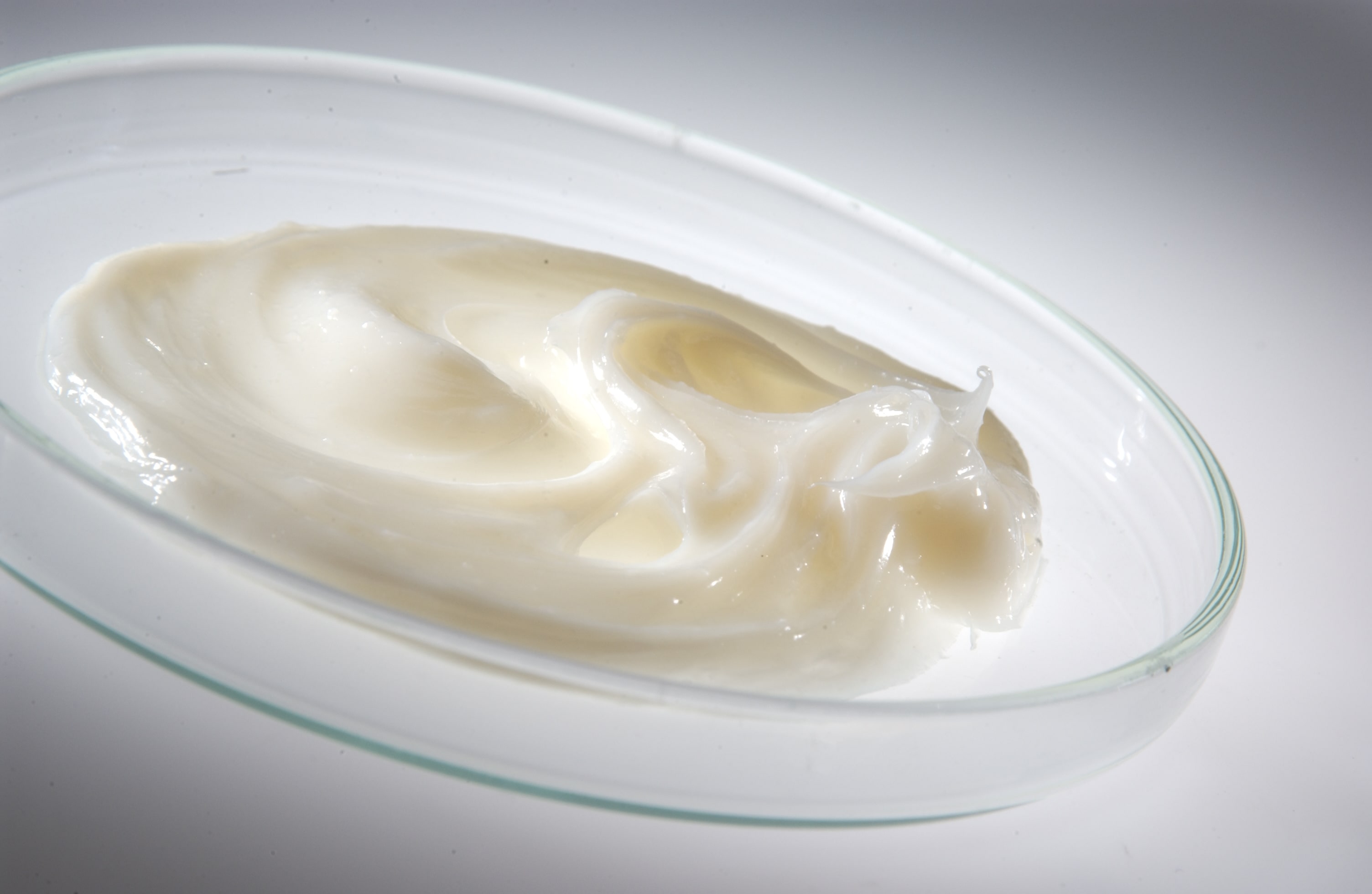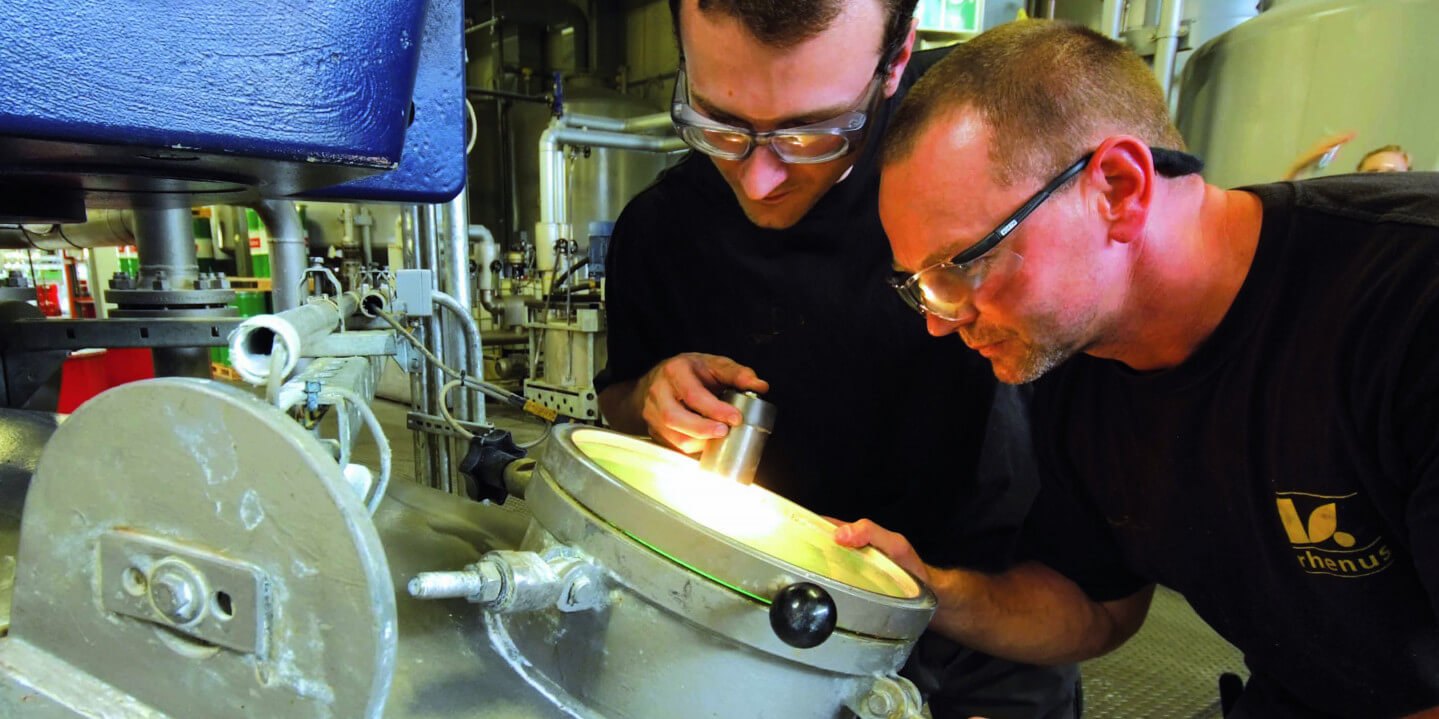Muslim spending on food is expected to reach $1.38 trillion by 2024. The provision of halal food demands a complex supply chain, including unexpected substances like lubricating grease.
Founded in Germany in 1882, Rhenus Lub produces lubricants for aircraft, medical, steel and other heavy industries and internationally operating food producers.
In 2005, the family-run business built a new factory for €16 million ($18 million). Recognising the increasing trend for halal food consumption, the company expanded to include an area reserved exclusively for halal-compliant lubricating grease production and continuously trains its 270 strong staff in everything that concerns halal.
Isolated for maximum security, the hall features separated material flow and piping systems connecting it to the other production facilities. The lubricant’s post-processing, such as homogenisation and packing into buckets and barrels for transport in the same venue, rule out cross-contamination.
“About 5% of our revenue comes from the halal-certified products,” said Marco Pfeiffer, product manager and sales manager greases, at the Mönchengladbach-based company.
In 2021, Rhenus Lub recorded €99 million ($108.8 million) in turnover. Pfeiffer says Rhenus Lub operates two sales and distribution models. The company’s sales offices and selected international partners sell the branded products, while the company runs a private label business where associates offer products under their brands.
Rhenus Lub enjoys a strong presence in Europe and further afield with Turkey and Indonesia being its main markets for halal products.
“We’re looking to strengthen our sales partnerships in the Middle East considering the untapped market potential there,” Pfeiffer told Salaam Gateway.
As the halal officer, Pfeiffer ensures the company complies with the relevant regulations and takes care of the staff’s continuous halal education. He explained the biggest challenge is finding suitable raw materials.
“Because it’s not enough that the grease ends up being halal-compliant, it also has to have the technical performance,” Pfeiffer said.
During the past few years, Rhenus Lub has invested in employee training and creating detailed work instructions on halal including cleaning work equipment before they are used in the halal area. Cleaning concerns not only chemical, but also ritual purification.
Pfeiffer said the various requirements have to meet the sophisticated management system with the company believing the demand was increasing annually.
“Certification is always a certain challenge, because it’s also the task of the auditors to shine a light on where there may still be a weak point,” he says, summing up his halal officer experience.
Beyond auditing and certifying Rhenus Lub, the German state Hessen-based certification company Halal Control manages some of the firm’s training requirements.
“We qualify employees, mainly quality officers or quality managers, to carry out internal employee training in their companies in a competent and targeted manner,” Halal Control’s general manager Mahmoud Tatari told Salaam Gateway.
The finished halal-certified lubricant (Courtesy: Rhenus Lub).
Training consists of an Islamological part covering the basics of halal and haram; critical points in the manufacture of halal products; halal standards and requirements for halal-compliant processes and products.
“(This) improves the understanding of the halal topic; increases the safe use of halal in the company and provides general guidelines for successfully setting up a Halal management system,” Tatari said.
Rhenus Lub also organises internal training courses both online and face-to-face with the company closely coordinating the content with Halal Control.
© SalaamGateway.com 2022. All Rights Reserved


